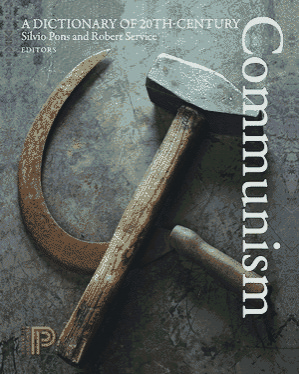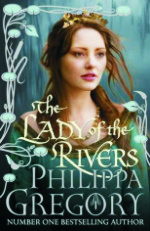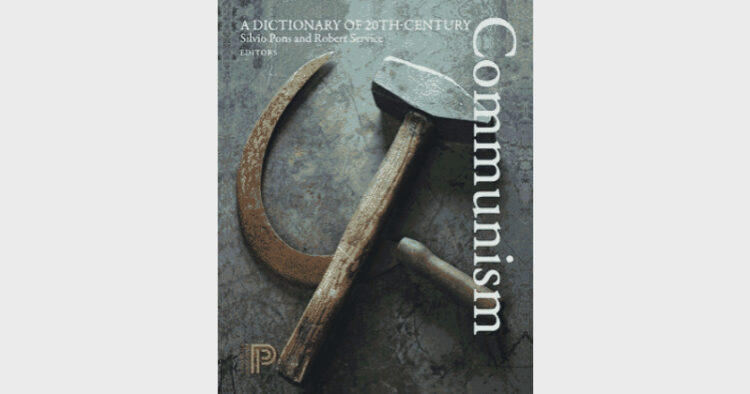Everything you want to know about Communism?
Dr R Balashankar?
 A Dictionary of 20th-Century Communism, edited by Silvio Pons and Robert Service, Princeton University, Pp 921 (PB), $45.00
A Dictionary of 20th-Century Communism, edited by Silvio Pons and Robert Service, Princeton University, Pp 921 (PB), $45.00
Communist states occupied nearly a third of the world’s surface and its influence even spread beyond that. It produced some of the biggest political thinkers, theorists, ideologues and dictators. However, with the sudden collapse of the Soviet Union, the wilting away of the East European nations (Berlin Wall and et all), Communist movements weakened world over. The number of countries that still swear by communism are less than a handful — China, Cuba, Vietnam and North Korea.
A Dictionary of 20th-Century Communism edited by Silvio Pons and Robert Service offers complete information and knowledge on communism. Events, people, movements and expressions relating to communism find entry here. Read about Foibe Massacres: foibeare natural karst cavities into which the nascent Yugoslav Communist regime presumably “disappeared” more than three thousand people. Or the more known Cultural Revolution of China. A huge list of names is there some known and some unknown.
If you wondered where the term “dictatorship of the proletariat” originated, turn the pages in the book. This was said by “Lenin to lie at the core of orthodox Marxism, and when writing The State and Revolution…” The Prague Coup was the seizure of power in Czechoslovakia by the Communists in 1948.
The study of communism has produced a huge volume of literature especially in the Cold War era when both sides were writing each other out. “…during their entire history, the Communists thought of themselves subjectively as the protagonists of a unified movement, whatever the forms and variations it might assume. A Dictionary of 20th-Century Communism’s editors believe that this can and should be taken as a criterion for its historiographical orientation. Until now published studies have alternately stressed monolithic or pluralist aspects, international or national elements” say the editors.
According to them, this volume contains more than four hundred entries on the 20th-century Communism, written by “a sizable group of authors chosen among major experts from Europe, Russia, the United States, and other countries on the basis of their contributions and most recent significant studies.” Three Communist leaders from India — M N Roy, E M S Nambood ripad and Jyoti Basu find mention in the volume.
The editors in their Introduction to the volume say “Communists followed the most diverse paths during the history of the 20th century. When they were not in power, they contributed to struggles for liberation and social emancipation. When they were in power, they established oppressive and tyrannical regimes. But communism has come to the end of its road, losing the fundamental challenges it launched with the October Revolution.”
The volume is more an encyclopaedia on communism than a dictionary. Exhaustive and therefore valuable, it offers short biographies of personalities and events. A definite value for money and worthy addition to the books on the easy-access shelf.
(Princeton University, 41, William Street, Princeton, New Jersey 08540)
Woman-oriented period novel of 15th century England?
Dr R Balashankar?
 The Lady of the Rivers, Philippa Gregory, Simon & Schuster UK Ltd., Pp 302 (PB), Rs 499
The Lady of the Rivers, Philippa Gregory, Simon & Schuster UK Ltd., Pp 302 (PB), Rs 499
Philippa Gregory’s latest novel The Lady of the Rivers is a gripping period novel, based on a real character drawn from the 15th century. The protagonist Jacquetta is a fascinating woman, bestowed with the power of second sight. She is married to Duke of Bedford, English Regent of France. When he dies, she secretly marries her husband’s squire Richard Woodville. The couple then shift to England and serve in the court of King Henry VI. The king and the queen were young and Jacquetta became a close friend of the queen.
Richard and Jacquetta are a wonderful couple deeply committed to each other. She bears him ten children. With her intuitive powers, Jacquetta manipulates several events in her life and that of her children. Her daughter Elizabeth goes on to marry the King of England, Edward IV. This was her second marriage. And she was the first ‘commoner’ to marry a sovereign king in England. The marriage was done in secrecy.
According to Philippa Gregory, Jacquetta was accused of witchcraft. “I have spent my life as an historian of women, their place in society and their struggle for power. The more I read about Jacquetta, the more she seemed to be the sort of character I particularly love: one who is overlooked or denied by the traditional histories, but who can be discovered by piecing together the evidence.”
Indeed she has done that, and marvelously too. Jacquetta comes alive as a warm, loving, intelligent, devoted and honest woman, who stood by those who she loved. Jacquetta was born in Luxembourg, whose museum narrates the story of Melusina, the water goddess. The rocks on which Melusina’s bath sank, when her husband broke his promise and spied on her are part of the tourism/heritage spots. Jacquetta was probably inspired by the story of Melusina, says Philippa. Jacquetta had also picked up alchemy from her first husband.
The novel is delight to read, absorbing the reader into the powerful character of Jacquetta. One moves with her sorrow and happiness. Philippa Gregory, a doctorate in 18th century literature has written several period novels. Some of her works have been adopted into the visual media.
(Rave Media, Simon and Schuster, 22-C, Siddhartha Extension, New Delhi-110 014)














Comments